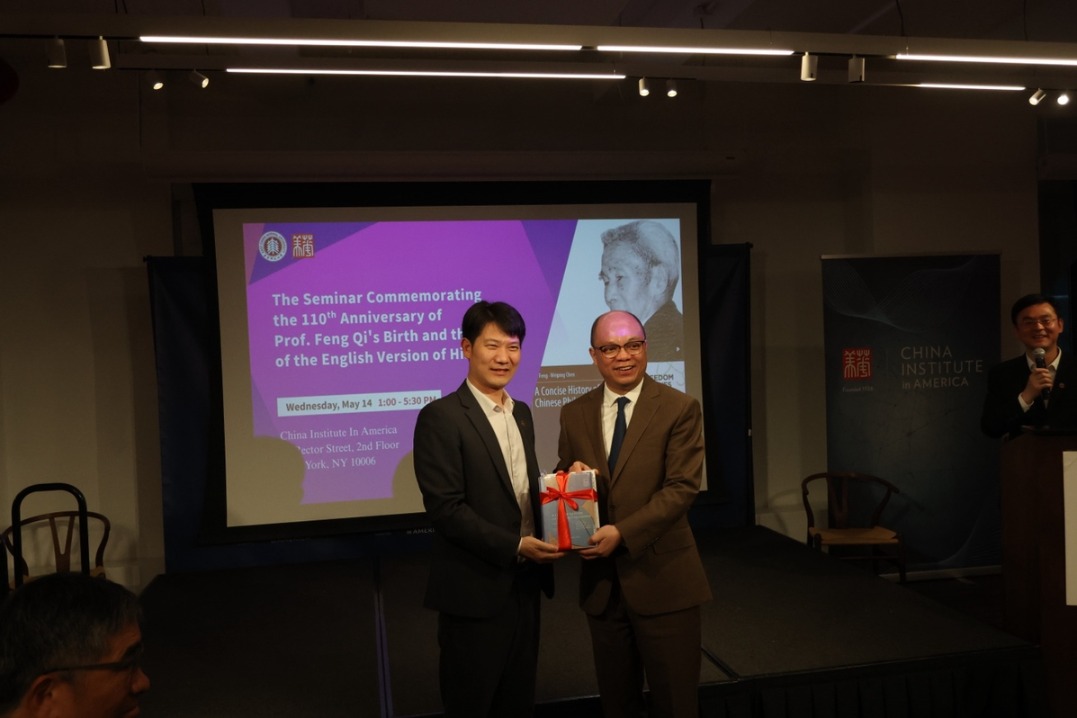China's visa-free access for South American countries lauded


China's decision to grant visa-free access to citizens of five South American countries was welcomed by regional experts as a practical move that could invigorate trade, tourism and cultural exchange.
Starting June 1, travelers from Brazil, Argentina, Chile, Peru and Uruguay will be able to enter China without a visa and stay for up to 30 days for tourism, business or family visits, the Chinese Foreign Ministry said on Thursday.
The one-year pilot program is the latest of China's efforts to deepen people-to-people and economic ties with South America.
"This is most welcome," said Jorge Heine, a former Chilean Cabinet minister and ambassador to China. "It sends a powerful message, indicating that China is open for business."
Heine said the new visa policy will likely strengthen China's soft power in Latin America, where public interest in Chinese civilization remains strong.
"China has always been a powerful magnet for Latin Americans, who are fascinated by Chinese culture, cuisine and architecture.
"Visa-free travel means that these attractions will now be enjoyed by many more visitors from some key countries south of the Rio Grande," he said.
Several of the five countries, including Brazil and Chile, are already part of China's Belt and Road Initiative, and many have seen a surge in trade and investment from China over the past decade.
Francisco Urdinez, associate professor of political science at the Pontifical Catholic University of Chile and director of the university's Center for Asian Studies, said the move could spark more interest in China among Latin Americans.
"This development is decidedly positive as it streamlines travel for individuals interested in experiencing China as tourists," he said.
"The policy will likely generate increased interest from South Americans who wish to include China in their broader Asian travel itineraries, making multi-country explorations more accessible and appealing," he said.
Urdinez also noted the business benefits of the visa exemption, particularly for entrepreneurs and trade delegates.
"This visa-free arrangement significantly facilitates attendance at trade fairs and business-oriented visits, creating valuable opportunities for commercial relationship development between our regions," he said.
He said the removal of visa requirements reduces bureaucratic barriers and encourages more spontaneous business interactions and potential partnerships.
Carlos Aquino, a Peruvian economist and professor at the Universidad Nacional Mayor de San Marcos, said the policy builds on years of intensifying ties between China and South America.
"Relations between Peru and China, and in general between South America and China, have increased in the last years, at every level," he said.
"Trade, investment, tourism, people-to-people exchange, students going to China to study — every aspect of the relations has increased. And the exemption of visas will encourage more of that."
Aquino pointed to recent infrastructure developments as an example of the region's growing integration with China.
"The opening of the Port of Chancay in Peru last November will allow a direct maritime route between not only Peru and China but also South America and China," he said.
"It will make sending goods or bringing goods to/from China cheaper and faster, increasing business opportunities," he said.
He contrasted China's openness with the US' tightening barriers. "With this announcement, China sends a powerful message of openness, in stark contrast of what the US is doing," he said.
Monica Hirst, an independent consultant in international politics and coordinator for Brazil at the Latin American Conversation, described the visa-free policy as a meaningful step but said it should be reinforced by institutional programs.
"The extended visas can be a positive move to promote more exchange and cooperation," she said. "To be more effective, it ought to be accompanied by concrete exchange programs and opportunities in education, culture and business."
































